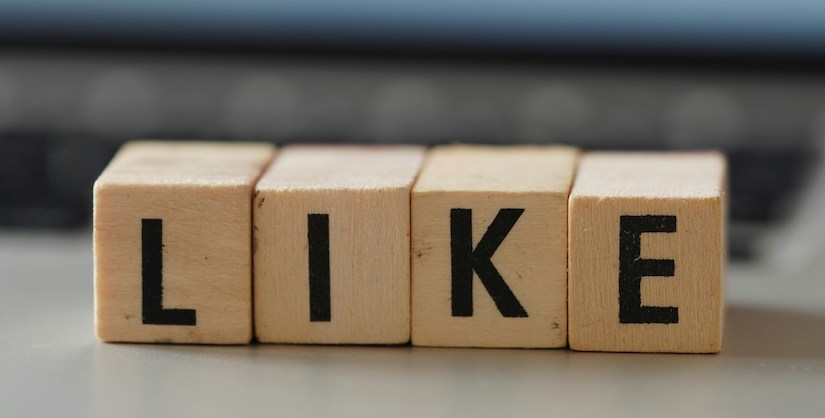Have you ever noticed how often the word "like" pops up in everyday conversation? It's not just you. "Like" is a champion among filler words. Those little linguistic placeholders that pepper our speech. But why do we use them? And what does it say about our human nature?
Linguistic studies reveal a fascinating array of reasons behind our love affair with filler words.
The pause that refreshes: buying thinking time
Filler words like "um," "er," and "like" are often our brain's way of buying precious seconds while we formulate a thought or search for the right word. They act as mental placeholders. This prevents awkward silences and keeps the conversation flowing. As Dr. Robbie Love, a lecturer in English Language at Aston University, notes in his study, ‘These hesitations seem to help us maintain the floor while we plan what to say next.’
Imagine a conversation without these verbal pauses. It would likely be punctuated by uncomfortable silences. This hinders the natural rhythm of back-and-forth exchange. Filler words bridge these gaps. Our thoughts can catch up without completely derailing the conversation.
Softening the blow: uncertainty and tentativeness
Sometimes, "like" reflects a speaker's lack of complete certainty about their statement. It softens the blow of an opinion or introduces a tentative thought. It can make the speaker appear less assertive. A study published in the Journal of Pragmatics highlights this function: ‘Speakers often use discourse markers like 'like' to mitigate the force of their utterances, especially when expressing opinions or evaluations.’
By inserting "like" or similar words, we signal that our statement might not be the absolute truth or the only valid viewpoint. This helps navigate potentially sensitive conversations or situations where we might not want to appear overly forceful.
Building bridges: social connection and rapport
Filler words can also function as social lubricants. This is discussed in a study by the University of California, Santa Barbara. They signal that we're still engaged in the conversation. It builds a sense of connection and shared understanding with the listener.
The study notes, ‘Filler words can act as social cues. They help to regulate turn-taking and maintain a sense of conversational flow.’
They create a sense of informality and ease. The conversation then feels more like a natural exchange.
Habitual tics: the unconscious fillers
Let's face it, filler words often become ingrained habits. We hear them from others, and they unconsciously slip into our speech. They become almost automatic verbal tics. This can be particularly true in moments of nervousness. Or when we're unsure what to say next.
While filler words serve a purpose, overusing them can have drawbacks:
- Distraction. Excessive filler words can distract from the actual message. This makes it harder for the listener to focus on the content. A barrage of "ums" and "likes" can become a barrier to clear communication.
- Unprofessionalism. In formal settings, excessive use of filler words can detract from your credibility. This makes you sound less polished. A well-prepared and concise presentation is less likely to be riddled with these verbal crutches.
- Nervousness. Frequent use of filler words can sometimes signal nervousness or anxiety. Especially when discussing sensitive topics. A few well-placed pauses are natural. But a constant stream of "you know" and "like" might unintentionally convey unease.
So, should we banish "like" from our vocabulary altogether? Not necessarily. While the mindful reduction is beneficial, especially in formal situations, filler words are a natural part of speech. They reflect the dynamic nature of our thought processes. They're the way we navigate social interactions.
Next time you catch yourself saying "like," take a moment to acknowledge its purpose. Are you buying yourself thinking time? Softening an opinion? Or simply building rapport? Recognising the reasons behind it can help us balance natural conversation with clear, concise communication.
Beyond "like": alternatives for clearer communication
Even for writers, the art of clear and concise communication is crucial. Our article Readability at the UN delves into speech skills. It highlights the importance of choosing the right words. This includes eliminating unnecessary filler to ensure impactful communication.
Even the most high-stakes speeches prioritise clarity and conciseness. Diplomats carefully craft their statements. They avoid jargon and filler words. This ensures their message resonates with a global audience. This focus on precision applies equally to writing. Every word should be chosen with intention. To deliver a clear and impactful message.
Here are some strategies to reduce filler words and enhance your communication:
- Embrace the pause. Don't be afraid of silence. A well-placed pause can be a powerful tool. It allows your thoughts to gather and your message to sink in.
- Speak slowly and clearly. Rushing through your words often leads to increased use of filler words. Slowing down allows for clearer articulation. It makes your speech more mindful.
- Practice and preparation. The more comfortable you are with your topic, the less likely you are to rely on filler words as crutches.
- Focus on active listening. Pay close attention to the other person. It can help you anticipate their responses. Then you can formulate your thoughts more effectively. This reduces the need for filler words.
- Edit ruthlessly. When writing, take advantage of the editing process. Identify and remove unnecessary filler words.
By understanding why we use filler words and adopting better strategies, we can communicate more effectively. This ensures our message is clear, concise, and impactful. Both in spoken and written forms. Remember, even the most eloquent speakers occasionally rely on a well-placed "um" or "like”. Nonetheless, mindful awareness and focusing on clarity can elevate our communication to a whole new level.


